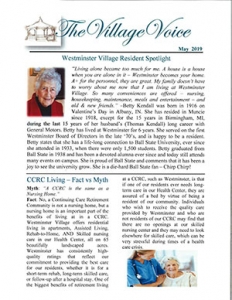Chaplain’s Corner: CLXXXII
“A Beautiful Heart”
In the movie “A Beautiful Mind” Russell Crowe plays a Nobel Prize winning mathematician John Nash. The film recounts the true story of Nash’s decent into schizophrenia, followed by his agonizing attempts to regain something of a “normal life” as a Princeton University Professor in the middle of the twentieth century. But the story behind that story is just as notable. It’s the story of Alicia Nash’s resilient love for her husband.
It’s challenging enough to marry the ultimate math nerd (although it’s worth noting she herself was a gifted physicist). But when Nash begins to drift across the boundary between fantasy and reality, it seems impossible for their relationship to endure. As he plunges into despair Alicia says gently, “You want to know what is real?” She puts her hand to his heart and his hand on her face: “This is real…”
How does she cope as he vanishes into a schizophrenic fog? “I look at him and I force myself to see the man I married, and he becomes that man. He’s transformed into someone that I love. And I am transformed into someone that loves him.”
Americans by and large subscribe to the myth that real love is a wonderful feeling that carries us along, sometimes even against our will, instead of a miraculous choice that must be made, again and again, in order to keep our relationships alive and well. Feelings follow choices. Like Alicia, we can look at each other with “grace-eyes”-much as we look with transforming kindness upon a loved one whose personality has become clouded by dementia, yet who is still there.
It is impossible to read the Apostle Paul’s letters, now twenty centuries old and not be struck by his call to relational intentionality: “Since you have been chosen by God who has given you this new kind of life, and because of His deep love and concern for you; you should practice tenderhearted mercy and kindness to others. Don’t worry about making a good impression on them, but be ready to suffer quietly and patiently. Be gentle and ready to forgive; never hold grudges. Remember the Lord forgave you, so you must forgive others”. (Colossians 2:12-14) Then he adds, “And over all these virtues put on love, which binds them all together in perfect unity.” (Colossians 2:15)
Paul seems to be thinking of a girdle or belt, which was a standard piece of first century clothing. After putting on one’s tunic and cloak, the girdle “held it all together,” making it possible to walk and work.
Love—choosing to act, regardless of feelings, in ways that will bless another person-is what allows every marriage, every friendship, and every partnership to keep going forward.
“A Beautiful Mind” closes with Nash accepting his Nobel Prize in Stockholm, Sweden 30 years ago. The brilliant mathematician, having found his way back to sanity looks over the audience: “I’ve always believed in numbers, in equations, in logic and reason. But after a lifetime of such pursuits I ask: What truly is logic? Who decides reason? My quest has taken me to the physical, the metaphysical, the delusional, and back. I have made the most important discovery of my career-the most important discovery of my life. It is only in the mysterious equations of love that any logic or reason can be found.” Then he looks at Alicia sitting in the crowd: “I am only here tonight because of you.”
Most of us will never be celebrated as someone with a beautiful mind. But we can all know something even more profound. We can all experience the wonder of a beautiful heart.
Faithfully,
Ron Naylor, Chaplain











